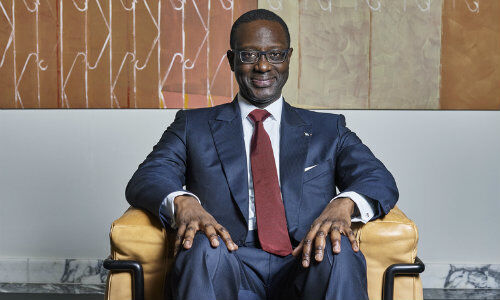Tidjane Thiam Emerges in Élysée's Political Plan
Tidjane Thiam is emerging as the linchpin in Élysée's plan for Côte d'Ivoire. The question is less whether he is willing, but whether he is allowed.
French President Emanuel Macron is treading lightly in Côte d'Ivoire – and floating the idea of ex-Credit Suisse boss Tidjane Thiam returning in a senior government role, the «Financial Times» (behind paywall) reported. A person close to Thiam made it clear to the outlet that he «could be persuaded» to return to Côte d'Ivoire.
The move comes amid a resurgence of attention in Thiam, culminating in a defensive apology by Credit Suisse over a racial slur. The 58-year-old French-Ivorian is impeccably connected politically, economically, and in business: after being ousted at the Swiss bank, he was elected a director at French luxury group Keuring and has recently spent his helping Africa fight coronavirus.
Valuable Political Asset
His experience as a consultant, executive, and government official makes him a hugely valuable asset for any government (he has in the past denied presidential ambitions of his own). Thiam, who was CEO of Aviva and Prudential before Credit Suisse, previously indicated that Credit Suisse would be his last job running a corporation.
The situation in Côte d'Ivoire is fluid because though current president Alassane Ouattara’s term ends this year, his natural successor died suddenly in July. France has no interest in Ouattara running again, but the 78-year-old has rebuffed what he perceives as Macron meddling, the pink paper reported.
French Tightrope
Thus Thiam emerged, apparently floated by Macron as a potential senior figure should Ouattara win another term, the «FT» reported. Macron is walking a tightrope in Côte d'Ivoire, where French influence – «Françafrique» – is reminiscent of colonialism.
Thiam could fix that: he served in Côte d'Ivoire’s government in 1998 until a military coup one year later, and is French-educated and maintains close Élysée ties. His French passport is likely to complicate his chances of running for president in Côte d'Ivoire, where it isn’t clear that dual citizens can hold the highest office.




















